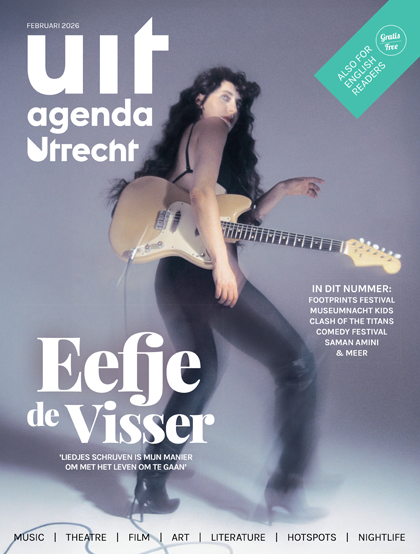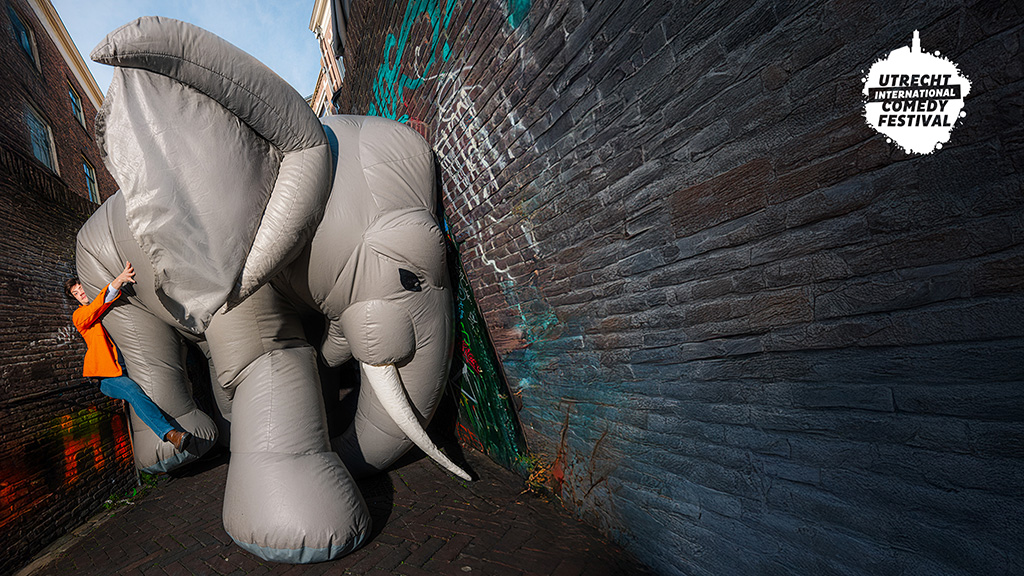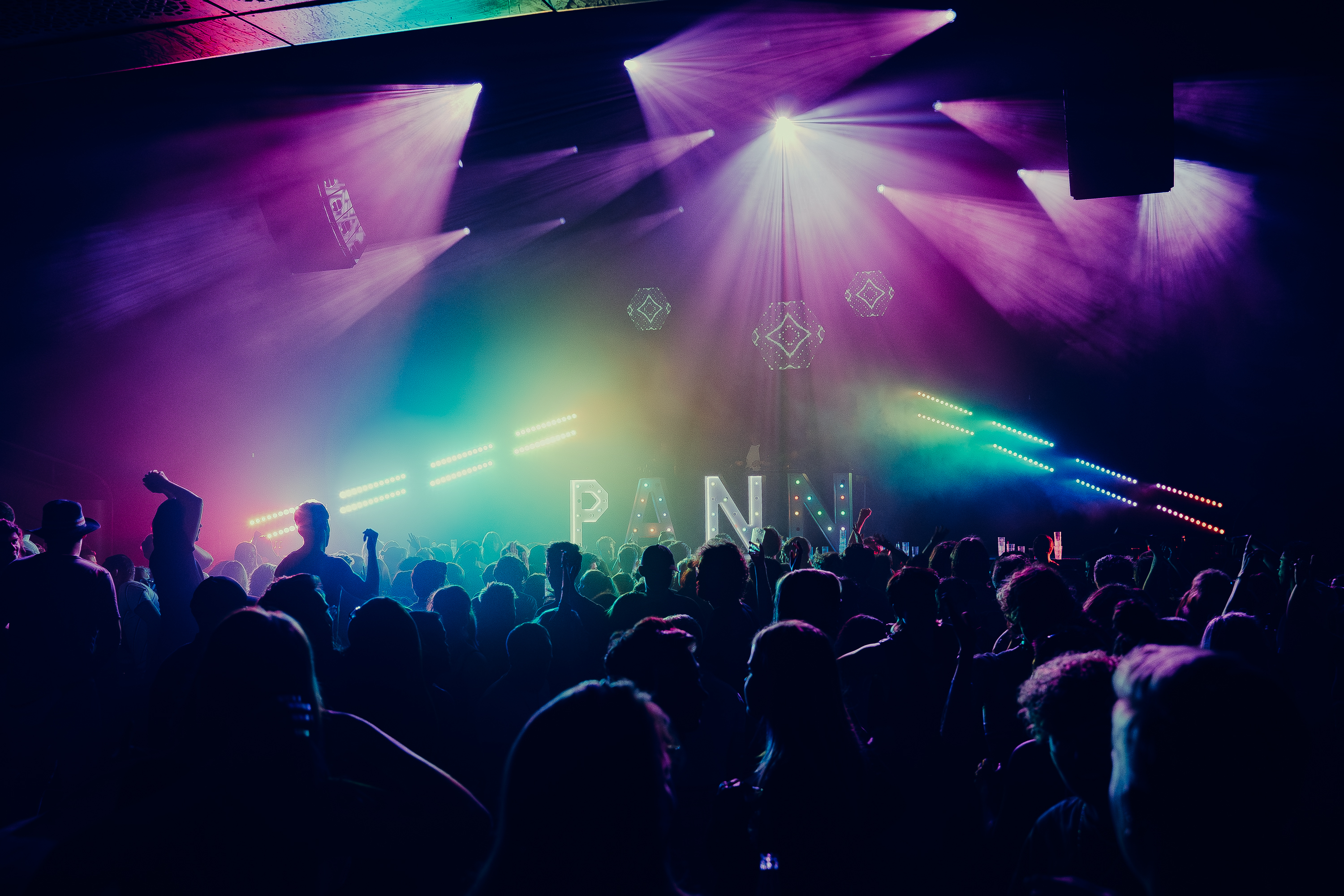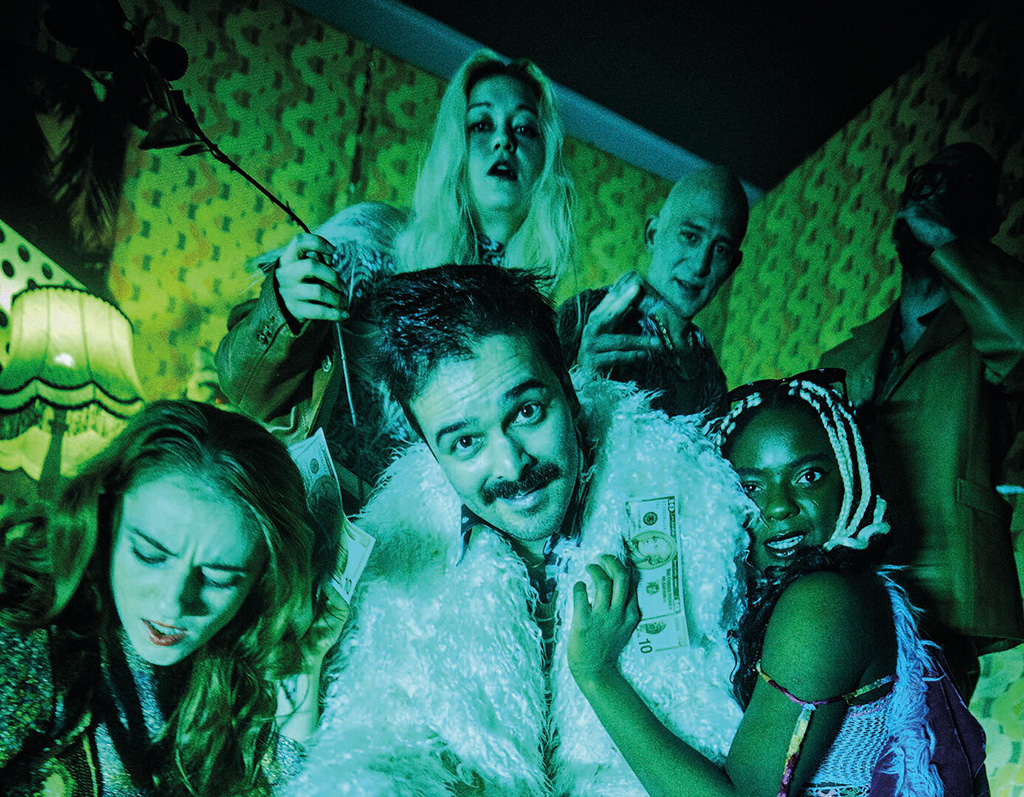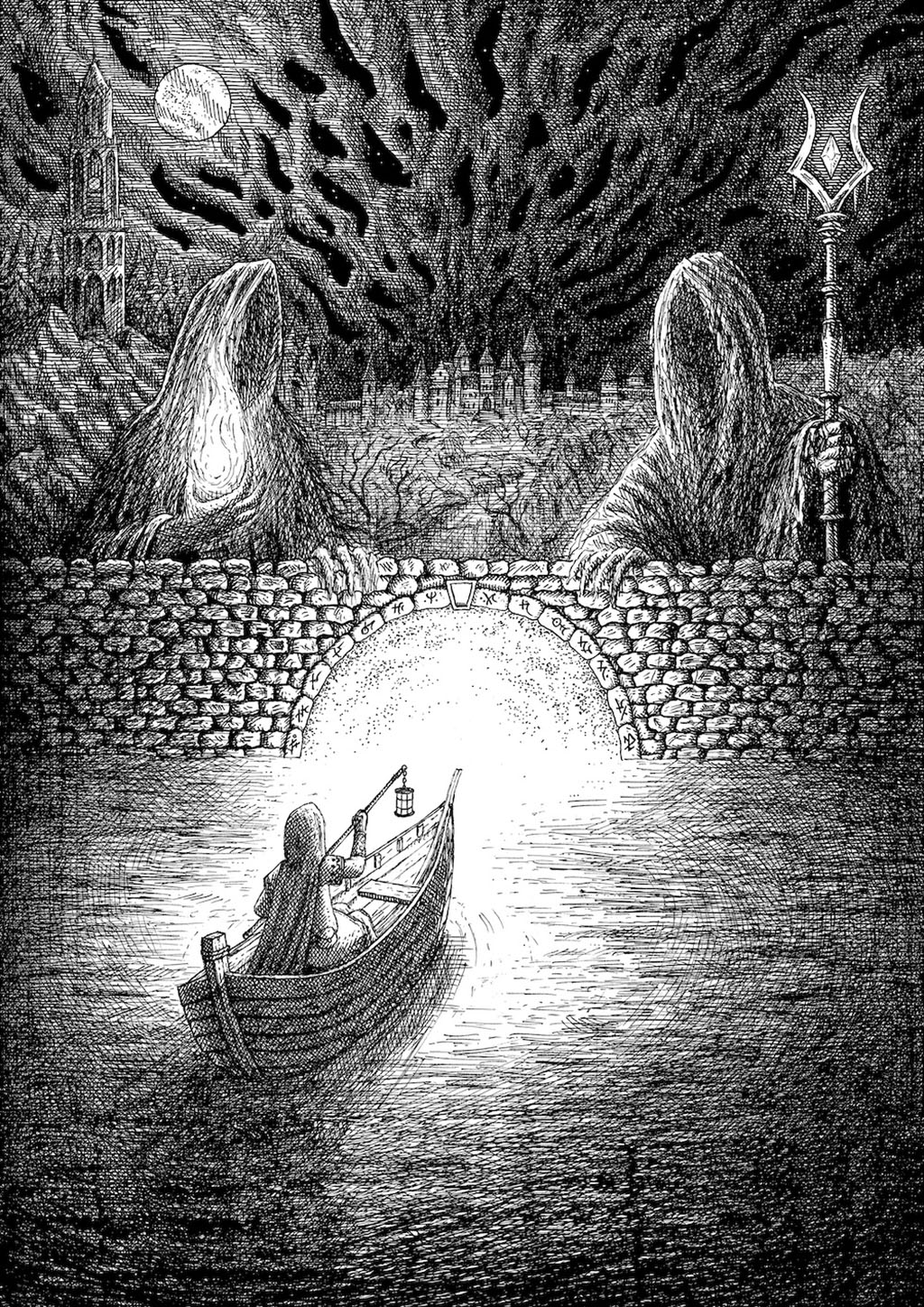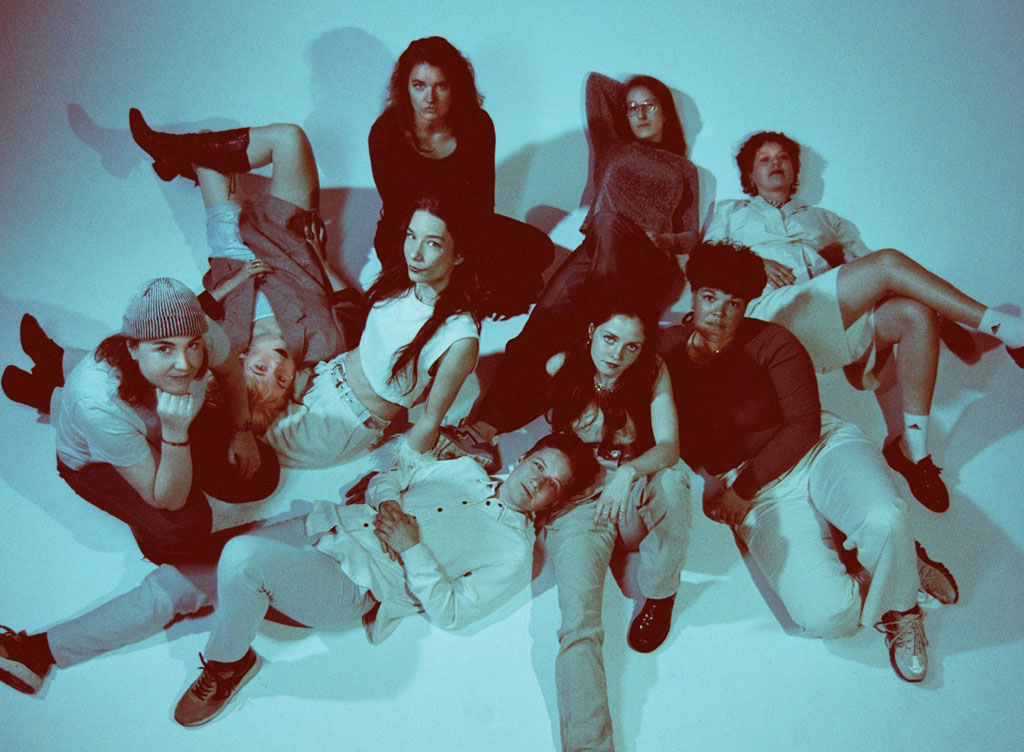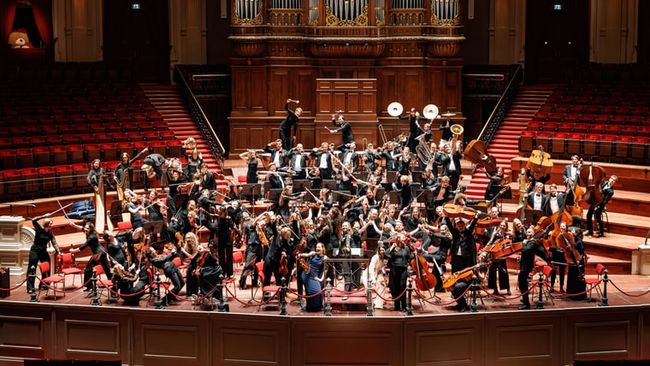Smells of Levant cooking and the sound track of a generation that grew up in an era of war, diaspora and digital creativity. Darbuka rhythms mixed with drum computer beats, and snippets of Oum Kalthoum ring out through the filters of laptop software. This is Nawafiz: invigorating and ground-breaking.
The Arabic word Nawafiz roughly translates as: windows with a view,’ says Iris Loos, one of the organisers of the Arabic music festival. ‘You open a window and look out onto a landscape. This is the idea behind Nawafiz. A broad perspective on the musical landscape.’ ‘If you enjoy Arabic music, you’ll love this,’ adds fellow-organiser Loubna El Boujoufi, the driving force behind the festival. ‘We’re in all the leading music journals in the Middle-East.’
Organs & techno
Don’t expect a-thousand-and-one-nights-type romantic or exotic sounds. Nawafiz is all about authentic sounds. A musical world very rarely heard in the Netherlands, but making waves in the trendy clubs from Cairo and Beirut to Paris and London. But most of all: via social media.
Godfather Zeid Hamdan from Beirut, an underground hero in the 1990s, is a pioneer. Back in the day, he and his band Soapkills created the type of music where triphop melts with classical Arabic singing. He mixed samples of organs and Eastern instruments with drum computer beats and techno-bass, accompanied by the mystical voice of the singer Yasmine Hamdan (no relation). In 2021, Hamdan moved to Paris, where he met the Syrian singer/composer Lynn Adib. Calling themselves Bedouin Burger, they made music that, as Zeid Hamdan puts it, ‘is deeply rooted in the traditions of our parents, while also being steeped in new technology.’ This is one of the acts in the Nawafiz line-up.
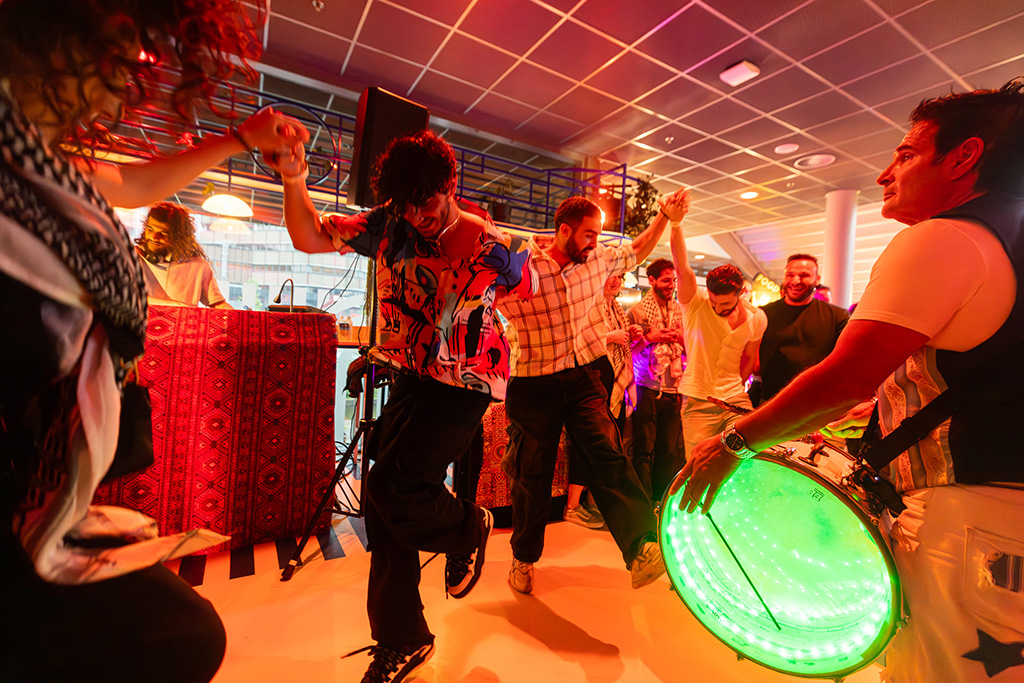
Creative explosion
Since the start of this century, you haven’t needed an expensive studio to produce music. It used to cost thousands of euros in studio time and professional equipment, but nowadays you can record, mix and master your own tracks in your bedroom using programmes like Ableton Live, Logic Pro or even free alternatives such as GarageBand. This democratisation of music production has led to an explosion of creativity, with independent artists now able to share their work without intervention from a record company. Cheap software, youth and anger form a powerful concoction.
It results in highly experimental, eclectic, avant-garde music. Music that is anti-authoritarian by definition, like Mahraganat from Cairo. ‘Pure musical chaos, impossible to assign to a genre from the western perspective,’ says Loubna El Boujoufi. ‘It’s pop, electronic, improvised and features DJs. All mixed up. Everyone goes crazy, you can’t stand still. It’s fantastic music.’
‘It evokes the feeling of late evenings in Cairo,’ Loos adds, ‘surrounded by music. It’s like suddenly being right in the middle of a street party.’
And this is what you can expect from Nawafiz. In the corridors, the smell of cumin and rose petals will combine with the sounds of Shamstep, Mahraganat and Iraqi and Palestinian rappers – ‘the world’s best rappers,’ says Loubna.
The festival is aimed at people with a bi-cultural background. Loubna grew up between two cultures herself. As a child on her way to spend the summer in Nador, she listened to Oum Kalthoum, who her father played in incessantly on the car radio. Arabic music is intense, emotional and intended to form a dialogue with its audience, with maqams; complex tone variations and melodic structures that evoke emotions that refuse to be categorised into major or minor. Loubna preferred rap – she has multiple ways of enjoying music: ‘Here in Western Europe, we grew up listening in silence. In the Middle-East, it’s all about creating a reaction: joy, sadness. You sing, dance and clap along.’
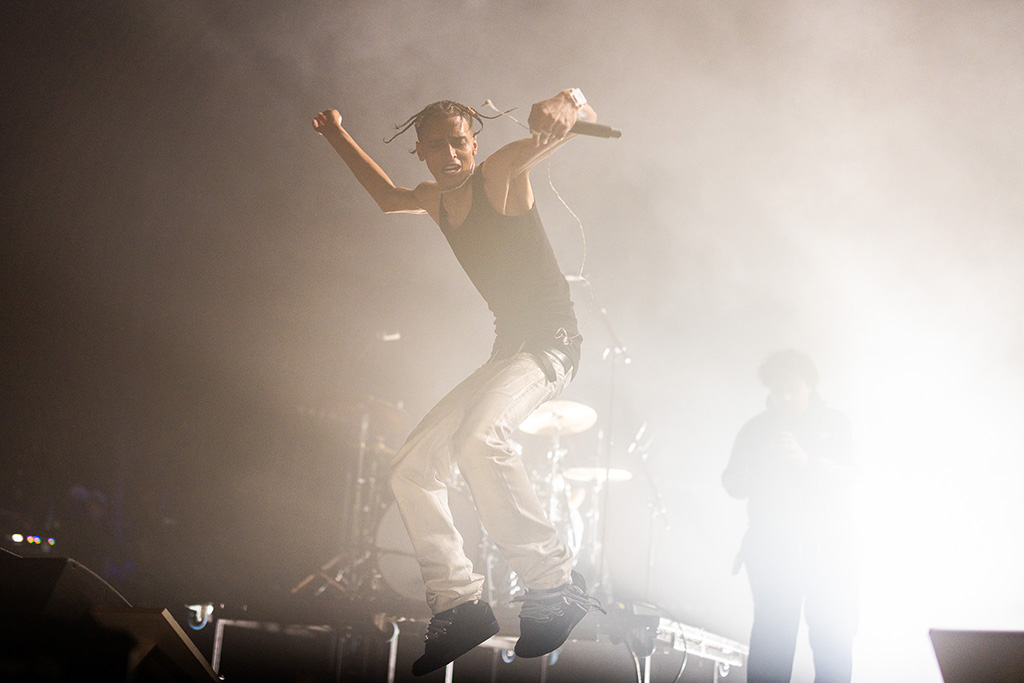
More mainstream
Nawafiz is expressly aimed at audiences that are familiar with both worlds, such as new Dutch citizens from Syria, Egypt and Lebanon, but everyone is welcome. ‘Even if you’re heavily into the Arabic music scene, you’ll still come across a band or genre you’re not familiar with,’ says Loubna. ‘There’s always a surprise.’
Although the festival doesn’t aim to be political, the crisis in Gaza cannot be ignored. Anger and sadness are fuel for rappers, producers and singers.
Loubna: ‘For many artists, music is a way to protest and express themselves.’ The Gaza protests are raising awareness of music from the Levant. Arabic music is becoming more mainstream. ‘Acts like Elyanna and Saint Levant are appearing at Coachella. And I watched the Spanish series Valeria last week, where they played DAM: one of the acts playing at Nawafiz.’
Arabic culture has been en vogue for some time now in Milan, Paris and London. ‘The Netherlands has been overlooked for too long.’ Nawafiz, now into its second edition, is set to change this. The festival represents that open window – for audiences as well as musicians.
25 May 2025, TivoliVredenburg, tivolivredenburg.nl

